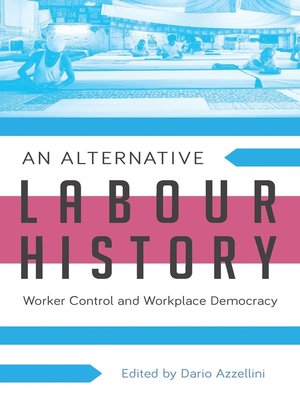An Alternative Labour History
ebook ∣ Worker Control and Workplace Democracy · Combat
By Assistant Professor Dario Azzellini

Sign up to save your library
With an OverDrive account, you can save your favorite libraries for at-a-glance information about availability. Find out more about OverDrive accounts.
Find this title in Libby, the library reading app by OverDrive.



Search for a digital library with this title
Title found at these libraries:
| Library Name | Distance |
|---|---|
| Loading... |
The global financial crisis has led to a new shop-floor militancy. Radical forms of protest and new workers' takeovers have sprung up all over the globe. In the US, Republic Windows and Doors started production under worker control in January 2013. Later that year workers in Greece took over and managed a hotel, a hospital, a newspaper, a TV channel and a factory.
The dominant revolutionary left has viewed workers' control as part of a system necessary during a transition to socialism. Yet most socialist and communist parties have neglected to promote workers' control as it challenges the centrality of parties and it is in this spirit that trade unions, operating through the institutional frameworks of government, have held a monopoly over labor history.
Tracing Marx's writings on the Paris Commune through council communism, anarcho-syndicalism, Italian operaismo, and other "heretical" left currents, An Alternative Labour History uncovers the practices and intentions of historical and contemporary autonomous workers' movements that until now have been largely obscured. It shows that by bringing permanence and predictability to their workplaces, workers can stabilize their communities through expressions of participatory democracy. And, as history has repeatedly shown, workers have always had the capacity to run their enterprises on their own.
The dominant revolutionary left has viewed workers' control as part of a system necessary during a transition to socialism. Yet most socialist and communist parties have neglected to promote workers' control as it challenges the centrality of parties and it is in this spirit that trade unions, operating through the institutional frameworks of government, have held a monopoly over labor history.
Tracing Marx's writings on the Paris Commune through council communism, anarcho-syndicalism, Italian operaismo, and other "heretical" left currents, An Alternative Labour History uncovers the practices and intentions of historical and contemporary autonomous workers' movements that until now have been largely obscured. It shows that by bringing permanence and predictability to their workplaces, workers can stabilize their communities through expressions of participatory democracy. And, as history has repeatedly shown, workers have always had the capacity to run their enterprises on their own.







